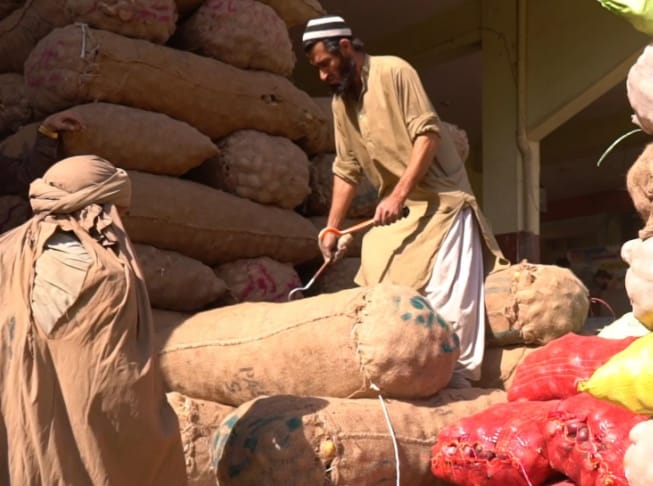“Most of the potato seeds in Pakistan highly depend on imports, hence the price of local high-quality seeds is expensive, unaffordable for many low-income farmers. Our tissue culture laboratory is committed to producing high-quality potatoes locally, reducing our dependence on foreign seeds,” Dr Babar Ijaz, person in charge of overseas projects, Shandong Rainbow Agricultural Technology Co., Ltd, told the reporter.
Potato is one of the rare cases in which Pakistan is not just self-sufficient for domestic use but also an exporter. Last year, floods have devastated many kinds of crops in Pakistan, while potato production soared to 7.937 million tonnes in FY22 from 5.873 millon tonnes in FY21, up by 35 percent as floods did not hit Punjab which is a hub of potato production. By contrast, Pakistan imports 20,000 tons of potato seeds every year.
“Potato is not a crop for poor people because its initial cost of production is high. 35-40 percent of the cost goes to seeds,” said Syed Ijaz ul Hassan, Director of the Sahiwal Potato Research Institute. Facing such a status quo, Pakistani and Chinese enterprises have been working hard to find opportunities for cooperation.
“In addition to seed production, related potato by-products are also welcome Chinese invests. Besides, mechanized harvesting, pest control are also full of opportunities,” Dr Babar Ijaz introduced.
“The most common potato diseases in Pakistan include early blight, stem rot and so on. In contrast, Chinese varieties are more resistant to pests and diseases with higher yields, which is exactly what Pakistan needs to learn to improve our own potato germplasm.”
“As early as 2018, Rainbow had signed a memorandum of understanding with Pakistan’s Beaconhouse Group. This year, most of our work that was delayed due to the epidemic began to accelerate,” said Fan Changcheng, Deputy General Manager of Rainbow.
“In order to build Pakistan’s largest potato tissue culture lab, Shandong Academy of Agricultural Sciences has also invested in our plan. At present, a small-scale tissue culture facility of the first phase of the lab is under planning, with a goal of producing 500 mu (33.3 hectares), equivalent to about 1,500 tons of potato seeds, and the second phase will be expanded to 10,000 tons,” Mr. Fan added.
As Mr. Fan said, since the current situation that Pakistan’s potato seeds are dependent on imports, increasing the supply of local seeds can save precious foreign exchange reserves and increase the income of farmers. If Pakistan can realize the large-scale production of local high-quality potatoes, in addition to meeting domestic needs, it can also export products to other countries, such as Arab countries.
“At present, Rainbow and Qatar’s vegetable institutions also have in-depth cooperation. Such a long-term plan not only help Pakistan potato producers get rid of import dependence, but also earn foreign exchange,” Mr. Fan stated.
Such viewpoint was echoed by Dr Babar Ijaz, “First of all, we must ensure the localized production of high-quality seeds, and at the same time improve planting technology and mechanization level. Then we might be able to export potatoes to other countries. We have a huge potential for countries that have smaller land areas or don’t produce much of their own potatoes.”


